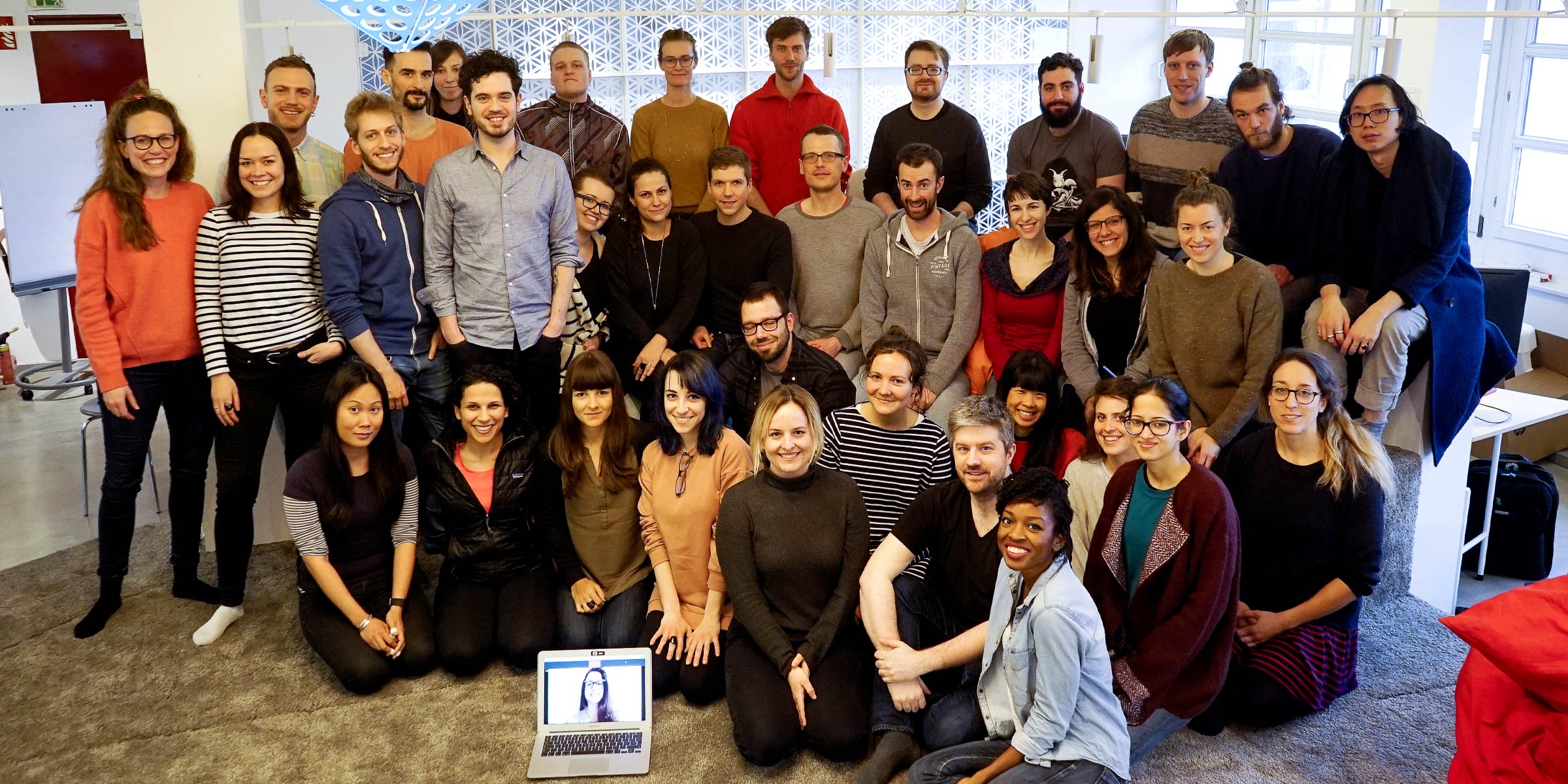Why we made a website
We want to close the global knowledge gap about menstrual and reproductive health.
I started working at Clue almost a year ago, and every day I learn something new about reproductive and menstrual health.
There are some basic facts about my own biology that I didn’t know before—facts that affect everyone. Just a few:
- Researchers suspect that people who experience symptoms of premenstrual syndrome may tend to drink more alcohol premenstrually.
- Even though many hormonal birth control methods work by stopping ovulation—the monthly release of an egg from the ovary—some hormonal IUDs don’t stop ovulation. They prevent pregnancy by thickening cervical mucus and thinning the uterine lining. (I learned this after getting a hormonal IUD inserted.)
- About 3 in 4 people with uteruses will have uterine fibroids in their lifetime (most are asymptomatic).
- And a fun fact: Each month, a little sac that holds an egg in the ovary grows to be the size of a HAZELNUT—with its shell on. Huge!
If even I didn’t know this stuff—and I work for a period tracking app—then what does that say about the state of reproductive health knowledge, worldwide?
The truth is that even the science on these topics is lacking.
There’s so little fundamental research about the menstrual cycle that many scientists enter the field wanting to research a specific topic—like endometriosis—and then need to back up and start with the basics.
At Clue, we are working hard to change this. Our menstrual cycle tracking app has millions of users, which has enabled us to gather data about the menstrual cycle that will advance scientific research.
 The Clue team at our office in Berlin.
The Clue team at our office in Berlin.
But this global lack of scientific knowledge has also created a vacuum of quality information for regular people.
In 2017, Clue's Support team received 1,368 inquiries related to health.
This is in addition to questions about using the app and the kinds of questions other tech companies get. The most common questions: Why is my period late? Why is my cycle irregular? When will I get my first period? Do I need to seek medical care?
If you don’t have regular access to a healthcare provider—and millions of people around the world don’t—the health information you can get on your smartphone is a lifeline.
What's out there
But it sometimes feels like the internet is telling you that you are pregnant, dying, or both. Or that your complicated question about a menstrual symptom has a too-simple answer. The available resources usually go one of two ways: reputable and well-researched but sterile; or empathetic and caring, but lacking evidence.
There’s a lot of mistrust in many of the “reputable” resources, and for good reasons. The medical establishment has made women feel like their health issues aren’t real. That their pain is imagined, that birth control side effects are inevitable and to be tolerated. Diagnoses for very common conditions and illnesses like PCOS or endometriosis come too late or not at all.
On the other end of the spectrum, hundreds of health coaches, wellness gurus, communities, and independent publishers offer empathy and empowerment, but little consensus or transparency about what informs the advice, and what the financial incentives are for providing it.
The writer Eleanor Morgan put it this way in The Guardian last month: “There is money to be made from vulnerable, soul-searching, dissatisfied women when wellness gurus and of-the- minute celebrity authors appear to offer neat, credible-sounding solutions.”
People deserve a different kind of online health resource: a place where menstrual and reproductive health is taken seriously and with a compassionate, listening ear, with both science and empathy at its core.
Meet helloclue.com
We hope that our website will be that resource. We want to help close the knowledge gap about the menstrual cycle—with information that’s accessible, serious, scientific, and empathetic.
We use the best available evidence to dive into topics that have long been ignored or misunderstood. Any health information we publish here has been rigorously fact-checked and edited. (Learn more about our framework for science content here.)
It’s impossible to capture the breadth of people’s individual health experiences with scientific research alone—especially considering the lack of available research on these topics.
This is why it’s so important that different kinds of people share their personal stories about taboo topics—from birth control, to PCOS, to fertility, to transitioning, to ovulation pain—and to acknowledge that the context for all of these varies widely, depending on a person's country, socioeconomic status, gender identity, race, and many other factors. We want our website to be a space for those stories, too. Millions of Clue users speak a language other than English, and it's very important for us to serve and represent them as well—stay tuned.
There’s more to your period, and we’re here to help. What are you most curious about? What health questions do you have? Let us know on Twitter or Instagram. And if you want to keep up with us, subscribe to our weekly newsletter.
Who made this?
Our site is a work in progress, but a lot of work has gone into building what you see. Here’s the team that made it:

(left to right)
Amanda Cormier - Editor, Product Owner
Katrin Friedmann - Lead Designer
Jesse Pinho - Senior Frontend Engineer
Omosola Odetunde - Tech Lead & Product
Owner, Senior Fullstack Engineer
How was it built?
Learn more about the tech used to build the site in Omosola and Jesse’s posts on our dev blog, Bleeding Edge:
- Introducing Backstage: deploy individual branches with ease!
- It can work (easily!): Serverless React and web crawlers
Who is producing the content?
Clue’s brand, content, and design team creates what you see and read on the site.
Anna Druet leads Clue’s research and science education, and our fact-checking and scientific review processes.
Jen Bell, Writer
Anna Druet, Researcher, Science and Education Manager
Shari Mahrdt, Video Producer
Claire McWeeney, Content Manager
Marta Pucci, Designer and Illustrator (she creates most of the beautiful illustrations that you see!)
Benedikt Scheckenbach, Designer
Maddie Sheesley, Writer and Project Manager
Nicole Telfer, Science Content Producer
Lisa Kennelly, Clue’s first head of marketing, and Erica Avey, Clue’s first content manager, created Clue’s brand and voice, and the basis for what you see here.
We're not accepting freelance submissions just yet, but stay tuned.

